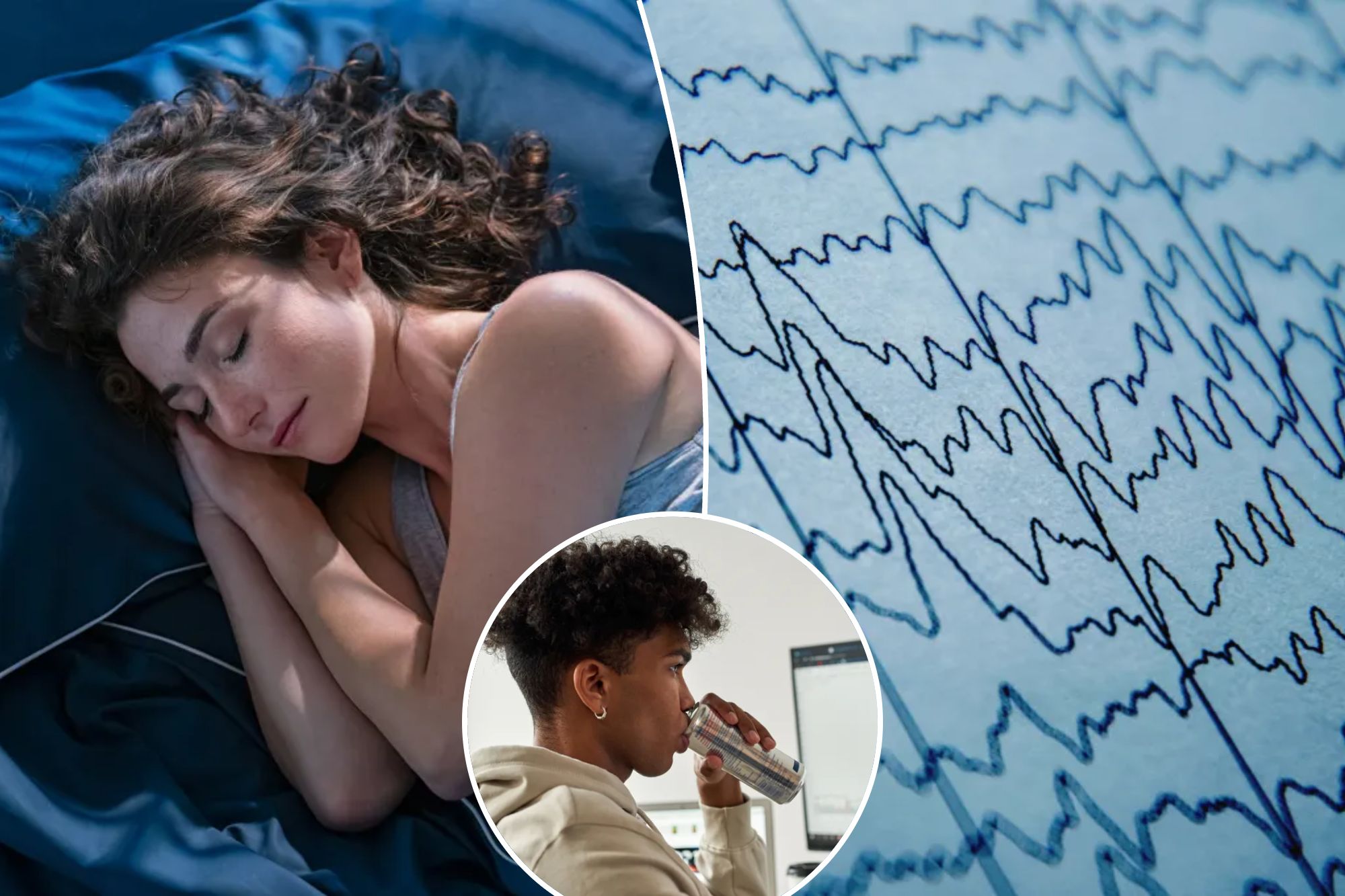Night scrolling is not the only thing that sabot your dream.
New research suggests that a common daily habit can send your brain to Overdrive while you sleep, even if you do it hours before going to bed.
Scientists warn that interruption could interfere with brain night recovery processes, potentially affecting your cognitive health.
In the study, Canadian researchers had 40 healthy adults spent two non -consecutive nights in a sleep laboratory.
One night, participants consumed 200 milligrams of caffeine, the equivalent of about two cups of coffee, a few hours before sleeping. On the other hand, they were given a placebo.
While most people know that caffeine can make it difficult for researchers to use EEG explorations to keep track of brain activity after participants dropped and found that they kept their brain in a state of intense alert much after they closed their eyes.
They found, for the first time, that the stimulant pushed the brain to a state of “critical”, making it more awake, alert and reactive than it should be during the capture of Zzz.
“Although this is useful during the day for concentration, this state could interfere with rest at night: the brain would not relax or recover properly,” said Dr. Julie Carrier, a professor of psychology at the University of Montreal and co-author of the study.
The team used artificial intelligence to detect subtle changes in neuronal activity and found that caffeine increased the complexity of brain signals, preventing the brain from feeding completely during sleep.
The effect was especially strong during sleepless sleep: the deep critical stage for memory and cognitive recovery.
Researchers also observed changes in brain wave patterns. Slow waves related to deep and restorative rest were reduced, while the fastest waves associated with the eve and mental activity increased.
“These changes suggest that, even during sleep, the brain remains in a more activated and less restorative state under the influence of caffeine,” said Dr. Karim Jerbi, a professor of psychology at the University of Montreal and a researcher at the Mila Quebec Artificial Intelligence Institute, who co-authored the study.
“This change in the rhythmic activity of the brain can help explain why caffeine affects the efficiency with which the brain recovers overnight, with possible consequences for memory processing,” he added.
Above all, the effect of the stimulants was much more pronounced in participants of 20 to 27 years compared to those of 41 to 58 years, especially during sleep, the dream phase linked to emotional and cognitive processing.
Researchers believe that younger adults responded more strongly due to more adenosine receptors. These molecules gradually accumulate in the brain throughout the day, causing fatigue.
“Adenosine receptors naturally decrease with age, reducing caffeine ability to block and improve brain complexity, which can partly explain the reduced effect of caffeine observed in middle-aged participants,” said Carrier.
The findings suggest that younger brains can be especially vulnerable to the hidden impact of caffeine at rest.
Caffeine is the most consumed psychoactive drug in the world, which is commonly found in products such as coffee, tea, chocolate, energy drinks and energy drinks.
A survey of 2023 Sleep Foundation found that 94% of North adults -Americans consume caffeine drinks and 64% drink them daily. Of these, 40% said they did not think that it affected sleep.
Although the FDA says that up to 400 milligrams of caffeine a day is generally safe for healthy adults, the study suggests that it could still interfere with sleep quality, even hours after the last sip.
Scientists call for more research how these night brain changes affect everyday functioning and cognitive health. This, as they said, could one day shape personalized caffeine recommendations.
#super #common #habit #brain #awake #sleeping #hours #sleeping
Image Source : nypost.com
